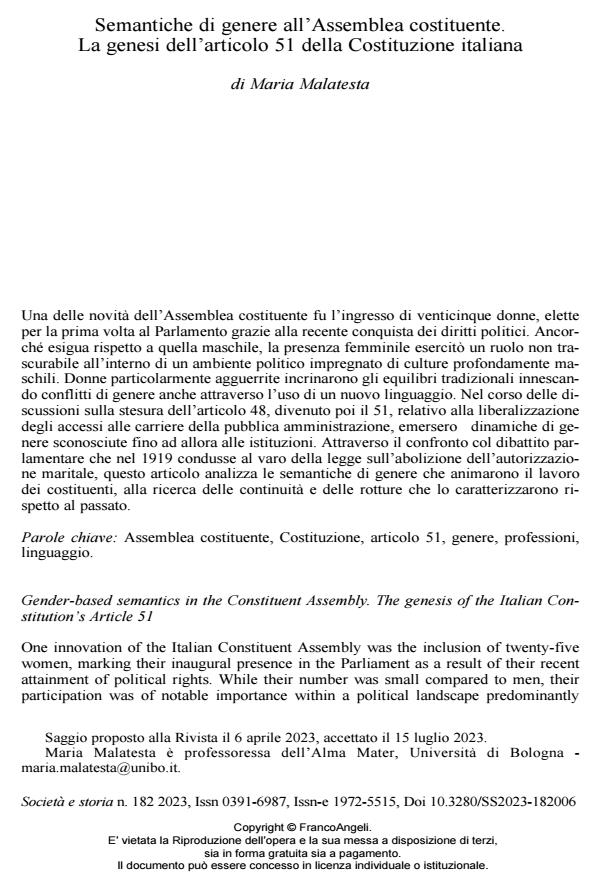Gender-based semantics in the Constituent Assembly. The genesis of the Italian Constitution’s Article 51
Journal title SOCIETÀ E STORIA
Author/s Maria Malatesta
Publishing Year 2023 Issue 2023/182
Language Italian Pages 21 P. 796-818 File size 159 KB
DOI 10.3280/SS2023-182006
DOI is like a bar code for intellectual property: to have more infomation
click here
Below, you can see the article first page
If you want to buy this article in PDF format, you can do it, following the instructions to buy download credits

FrancoAngeli is member of Publishers International Linking Association, Inc (PILA), a not-for-profit association which run the CrossRef service enabling links to and from online scholarly content.
One innovation of the Italian Constituent Assembly was the inclusion of twenty-five women, marking their inaugural presence in the Parliament as a result of their recent attainment of political rights. While their number was small compared to men, their participation was of notable importance within a political landscape predominantly shaped by masculine influences. These notably determined women disrupted conventional norms, starting gender-based conflicts and introducing novel language usages. The discussions surrounding the formulation of Article 48, later renumbered as Article 51, concerned the broadening of opportunities in the public sector and unveiled unprecedented gender dynamics within the institutional framework. By contrasting this with the parliamentary discourse that in 1919 led to the enactment of the law abolishing marital authorization, this paper dissects the gender-based semantics that animated the Constituent Assembly’s debates The objective is to discern both the continuities and the ruptures that distinguished these proceedings from the past.
Keywords: constituent assembly, article 51, gender, professions, discourses.
Maria Malatesta, Semantiche di genere all’Assemblea costituente. La genesi dell’articolo 51 della Costituzione italiana in "SOCIETÀ E STORIA " 182/2023, pp 796-818, DOI: 10.3280/SS2023-182006